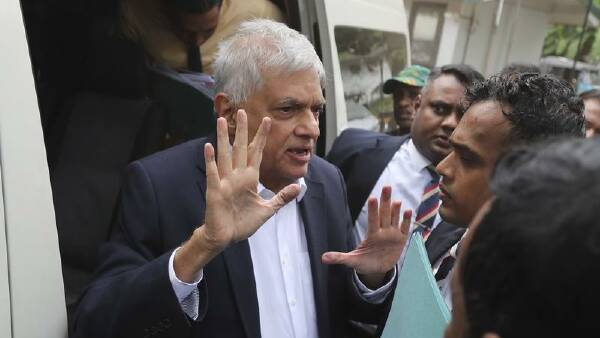
The former president of Sri Lanka, Gotabaya Rajapaksa, has been released on bail following his arrest on September 28, 2023, regarding allegations of misappropriating public funds. His detention incited significant street protests in Colombo, where supporters criticized the government’s actions as a targeted political witch-hunt.
The unrest began shortly after Rajapaksa’s arrest, with thousands of demonstrators taking to the streets to express their discontent. Protesters brandished placards and chanted slogans condemning the government’s handling of the situation. Many view the charges against him as politically motivated, aimed at undermining his influence and that of his supporters.
Rajapaksa, who stepped down from the presidency in July 2022 amid widespread protests over the country’s economic crisis, has consistently denied any wrongdoing. The allegations focus on his administration’s alleged misuse of approximately $1.2 million in state funds during his tenure. Supporters argue that the accusations are part of a broader strategy to silence dissent against the current government.
The situation escalated on the streets of Colombo, where police deployed tear gas and water cannons to disperse crowds. Reports indicate that several protesters sustained injuries during the clashes, prompting calls for restraint from human rights organizations.
In court, Rajapaksa’s legal team argued that the charges were unfounded and that the former president was being targeted for his past leadership. The judge granted bail, setting conditions that will require Rajapaksa to report to authorities regularly as the case progresses.
Political analysts suggest that the unrest reflects deeper societal divisions within Sri Lanka, exacerbated by the ongoing economic challenges the nation faces. Inflation continues to soar, impacting daily life for many citizens. As the government grapples with these issues, the political landscape remains fraught with tension.
The ramifications of Rajapaksa’s arrest and subsequent release could have lasting implications for Sri Lanka’s political climate. Supporters and opponents alike are closely watching how the government will navigate this critical juncture, particularly as the country approaches national elections scheduled for early 2024.
As protests continue, the call for accountability and transparency in governance remains a pressing issue for many Sri Lankans, reinforcing the need for a stable environment and effective leadership in the months ahead.






